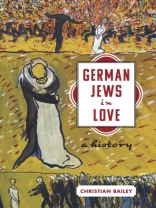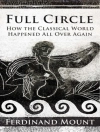This book explores the dynamic role of love in German-Jewish lives, from the birth of the German Empire in the 1870s, to the 1970s, a generation after the Shoah. During a remarkably turbulent hundred-year period when German Jews experienced five political regimes, rapid urbanization, transformations in gender relations, and war and genocide, the romantic ideals of falling in love and marrying for love helped German Jews to develop a new sense of self. Appeals to romantic love were also significant in justifying relationships between Jews and non-Jews, even when those unions created conflict within and between communities.
By incorporating novel approaches from the history of emotions and life-cycle history, Christian Bailey moves beyond existing research into the sexual and racial politics of modern Germany and approaches a new frontier in the study of subjectivity and the self. German Jews in Love draws on a rich array of sources, from newspapers and love letters to state and other official records. Calling on this evidence, Bailey shows the ways German Jews’ romantic relationships reveal an aspect of acculturation that has been overlooked: how deeply cultural scripts worked their way into emotions; those most intimate and seemingly pre-political aspects of German-Jewish subjectivity.
Table des matières
Introduction: Introduction
1. A Tabernacle in the Desert: The Loving Marriage in Imperial Germany
2. A ‘Society of Two’? Partnerships in the Interwar Democracies
3. ‘They Stuck Together like Iron Ore’: Jewish and Mixed Marriages in the Third Reich
4. A Golden Cage? Jewish Families in West Germany
Conclusion: Conclusion
A propos de l’auteur
Christian Bailey is Assistant Professor of History at Purchase College.












